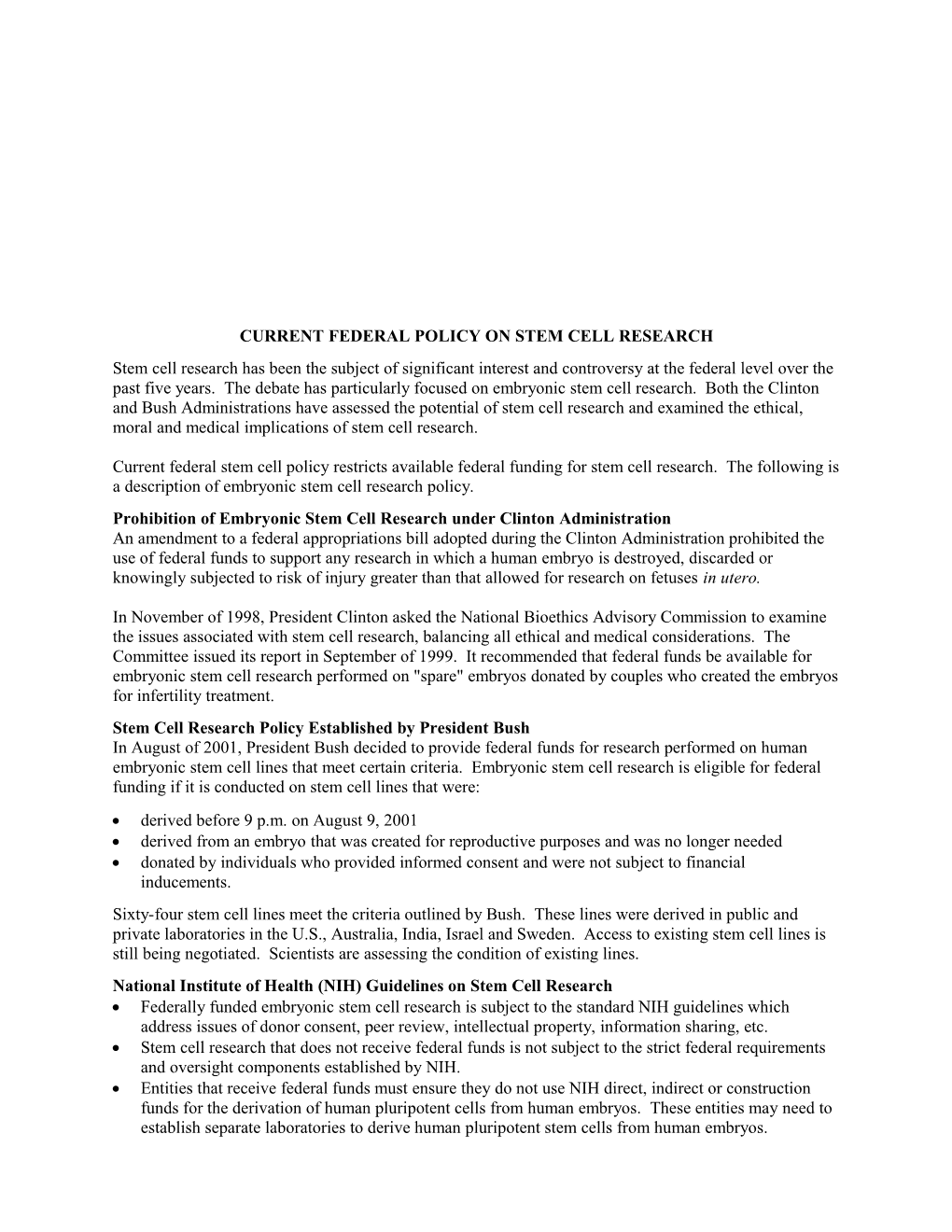CURRENT FEDERAL POLICY ON STEM CELL RESEARCH
Stem cell research has been the subject of significant interest and controversy at the federal level over the past five years. The debate has particularly focused on embryonic stem cell research. Both the Clinton and Bush Administrations have assessed the potential of stem cell research and examined the ethical, moral and medical implications of stem cell research.
Current federal stem cell policy restricts available federal funding for stem cell research. The following is a description of embryonic stem cell research policy.
Prohibition of Embryonic Stem Cell Research under Clinton Administration
An amendment to a federal appropriations bill adopted during the Clinton Administration prohibited the use of federal funds to support any research in which a human embryo is destroyed, discarded or knowingly subjected to risk of injury greater than that allowed for research on fetuses in utero.
In November of 1998, President Clinton asked the National Bioethics Advisory Commission to examine the issues associated with stem cell research, balancing all ethical and medical considerations. The Committee issued its report in September of 1999. It recommended that federal funds be available for embryonic stem cell research performed on "spare" embryos donated by couples who created the embryos for infertility treatment.
Stem Cell Research Policy Established by President Bush
In August of 2001, President Bush decided to provide federal funds for research performed on human embryonic stem cell lines that meet certain criteria. Embryonic stem cell research is eligible for federal funding if it is conducted on stem cell lines that were:
- derived before 9 p.m. on August 9, 2001
- derived from an embryo that was created for reproductive purposes and was no longer needed
- donated by individuals who provided informed consent and were not subject to financial inducements.
Sixty-four stem cell lines meet the criteria outlined by Bush. These lines were derived in public and private laboratories in the U.S., Australia, India, Israel and Sweden. Access to existing stem cell lines is still being negotiated. Scientists are assessing the condition of existing lines.
National Institute of Health (NIH) Guidelines on Stem Cell Research
- Federally funded embryonic stem cell research is subject to the standard NIH guidelines which address issues of donor consent, peer review, intellectual property, information sharing, etc.
- Stem cell research that does not receive federal funds is not subject to the strict federal requirements and oversight components established by NIH.
- Entities that receive federal funds must ensure they do not use NIH direct, indirect or construction funds for the derivation of human pluripotent cells from human embryos. These entities may need to establish separate laboratories to derive human pluripotent stem cells from human embryos.
